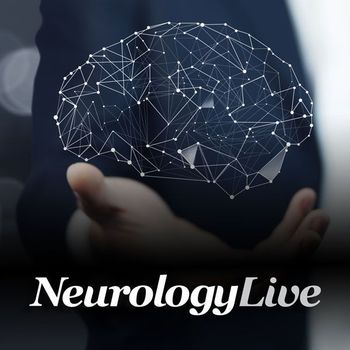
The study is the first to support the validity of the ESS-CHAD in pediatric participants under the age of 12 years, showing internal consistency, test-retest reliability, responsiveness to change, and construct validity.

Abby Reinhard, Assistant Editor for NeurologyLive, has covered medical news for MJH Life Sciences, NeurologyLive’s parent company, since 2021. Email her at [email protected]

The study is the first to support the validity of the ESS-CHAD in pediatric participants under the age of 12 years, showing internal consistency, test-retest reliability, responsiveness to change, and construct validity.

The light intervention was found to reduce awakening time at night, delay sleep offset, and advance sleep onset in a small patient population with dementia.

Eighteen percent of the Alzheimer disease treatment’s study participants are anticipated to be Black/African American and Latinx, according to an announcement from Biogen and Eisai.

Results from the cohort study suggest that a third dose was also associated with modestly increased levels of anti-SARS-CoV02 spike receptor-binding immunoglobulin G antibodies in those who had reduced protective humoral immunity before reimmunization.

The submission to the FDA is supported by interim data from the RAINBOWFISH trial (NCT03779334), as all 5 babies treated with risdiplam maintained the ability to swallow and feed exclusively orally after 12 months.

Investigators developed a weighted logistic regression-based sleep-wake scoring method for actigraphy data, concluding that it aided in assessing sleep in CP.

The FDA accepted the new drug application for priority review, setting a PDUFA action date of May 12, 2022.

The clinical hold comes 2 days after an announcement from Denali Therapeutics detailing a partnership with Takeda Pharmaceutical Company to codevelop and cocommercialize the treatment.

Dubbed COVID-DoC, the prospective study is the largest of its kind to date and provides initial data on the prognosis and pathophysiology of the condition in a group of patients at Massachusetts General Hospital.

The study of 251 hospitalized patients with COVID-19 found that biomarkers were elevated to levels that were similar to—or even higher than—those observed in patients with Alzheimer disease.

Yumanity Therapeutics announced the hold, which was in response to an investigational new drug application submitted to the FDA in December 2021.

The trial is a twin of ENSURE-1, which began in November 2021, and is supported by positive clinical data from the phase 2 EMPhASIS trial.

Zhittya Genesis Medicine announced the trial to evaluate its biological drug, FGF-1, which is administered via an intranasal delivery device, in a cohort of individuals with mild to moderate ALS.

Investigators suggest that sex-specific strategies should be invoked to reduce the amount of early stroke deaths after observations suggest that female sex is linked to lower risk of stroke-related events.

David Fischer, MD, neurocritical care fellow at Massachusetts General Hospital and Brigham and Women’s Hospital, outlined findings from a recent study that evaluated hospitalized patients with COVID-19 who were not regaining consciousness.

Investigators measured p-tau181 and p-tau231 levels with in-house single molecule array assays and cognition with the Mini-Mental State Examination.

The results, which included data from more than 7000 patients with ET and almost 500,000 individuals overall, may help identify new common genetic risk factors for ET.

Jennifer Frontera, MD, professor of neurology, NYU Langone Grossman School of Medicine, discussed findings from a recently published study investigating neurological complications in hospitalized patients with COVID-19.

Despite not providing additional, clinically relevant benefit for patients with amyotrophic lateral sclerosis as an add-on to standard therapy, the intravenous treatment was feasible and well tolerated.

The Anavex Life Sciences treatment was found to be well tolerated in all cohorts of healthy patients with no serious adverse events reported. It is in development for conditions such as frontotemporal dementia.

Reflecting on 2021, Mitzi Joi Williams, MD, the founder and CEO of Joi Wellness Group MS Center discussed the positive repercussions of the COVID-19 pandemic, which allowed for more freedom when sharing data.

Mitzi Joi Williams, MD, founder and CEO of Joi Wellness Group Multiple Sclerosis Center, shared her thoughts on changes to the MS care model over the past year, as well as how the pandemic and telehealth have affected care for underrepresented populations.

Investigators partly attribute different trends in ischemic vs hemorrhagic strokes to differences in the development of acute therapeutic strategies over the 20-year study period.

Mortality remained elevated even after 20 years poststroke, highlighting the importance of long-term follow-up in this patient population.

Douglas Scharre, MD, discussed the key findings from a recent study evaluating the Self-Administered Gerocognitive Exam and its application for at-risk populations.

According to the study, which assessed the EAT-Lancet diet and Alternate Health Eating Index-2010 in more than 2000 patients, dietary pattern has a distinct association with different stroke subtypes.

Douglas Scharre, MD, provided an overview of the pen-and-paper and digital versions of the test, which do not require an administrator.

The authors noted that future studies should investigate this association to identify patients with obstructive sleep apnea who are at risk of potential cognitive decline and adverse health function.

Investigators assert there is still room for improvement to further minimize exposure, as the treatment was used in a relevant number of pregnancies in 2016.

Investigators also pointed to the potential repetitive administration of the SAGE test to identify stability or decline, effectively providing an objective cognitive biomarker.